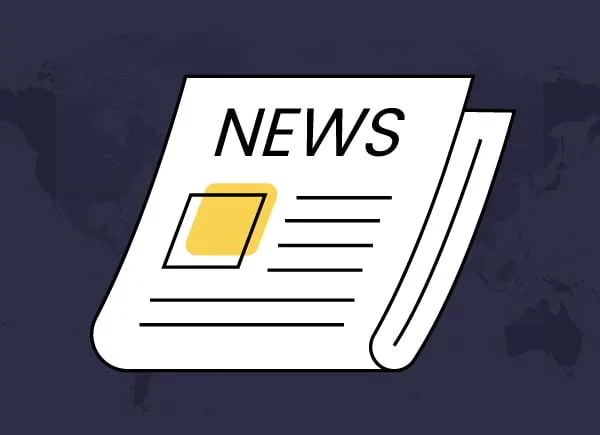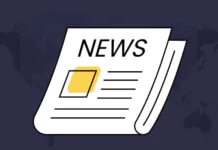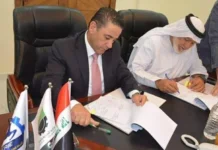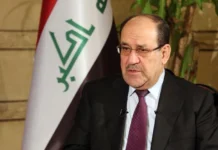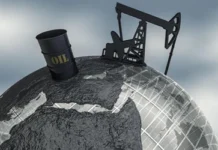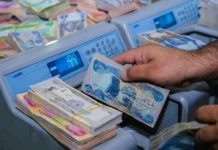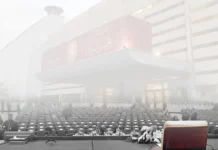Clare: From Basra to Manhattan: The Full Story of Iraq’s Money Being Withheld by the Federal Reserve
8/15/2025
At dawn, giant oil tankers dock at the docks of Basra port, loading pipes gleaming under the lights, and pumps pump millions of barrels of crude into the bilges of ships bound for world markets.
A scene that reflects immense wealth, but what is often overlooked is that the bulk of the proceeds from this “black gold” travel a route that does not end in Baghdad, but rather extends across the Atlantic Ocean to the heart of Manhattan in New York, inside the fortified US Federal Reserve building.
There, Iraqi wealth is transformed into numbers in American financial books, subject to strict oversight and procedures that leave no room for maneuver. These arrangements were created in 2003 but remain in place today, even though their original justifications (on paper) have disappeared.
For many Iraqis, this equation amounts to little more than a combination of protection and guardianship, with officials and analysts saying that any attempt to sever this link could mean freezing assets, disrupting employee salaries, or even losing control over the country’s finances.
These concerns did not arise out of thin air. Rather, they are an extension of a long process that began with UN resolutions and US executive orders that shaped the management of these funds since 2003. Therefore, the Shafaq News Agency team began investigating the background of this file, opening what some describe as the “black box” of the financial relationship between Baghdad and Washington. How did the arrangement come about, why does it continue to this day, and who benefits from keeping Iraqi funds under external supervision?
From the Security Council to the American umbrella
In May 2003, the Security Council issued Resolution 1483, which required Iraq to transfer all oil and gas revenues to a special account in the name of the Central Bank of Iraq at the US Federal Reserve, under UN supervision, with 5% of the revenues to be set aside for reparations to Kuwait for the 1990 invasion. In parallel, then-US President George W. Bush issued Executive Order 13303, which granted these funds full legal immunity from any seizure or confiscation.
Over nearly two decades, Iraq continued to pay reparations, reaching a total of $52.4 billion, and the Kuwait case was finally closed in 2022.
But despite the original commitment ending and UN protection being lifted in 2011, Washington has continued to renew the executive order year after year, most recently in May 2025.
For American policymakers, the arrangement has transcended its original purpose, becoming a tool for ensuring financial stability in a country experiencing political and economic volatility, while also providing a means of monitoring the dollar’s movements and protecting strategic interests.
Between Washington and Baghdad
In Washington, economists do not view this mechanism as merely a technical financial measure. For example, Dr. Frank Musmar, an economist and chairman of the University of Maryland’s Advisory Board, describes it as “more than just a financial measure.”
He told Shafaq News, “The Federal Reserve provides Iraq with a safe haven for its revenues amid volatility in energy markets, and enhances investor confidence that funds are managed according to transparent standards. Its presence there also allows Iraq easy access to the US financial system, facilitating debt repayment and import financing.”
But Mismar warns of the other side of this umbrella: “This is a double-edged sword. The United States can, if it wants, use this money as a political bargaining chip. Iraq is here between financial stability and the loss of some of its economic sovereignty.”
On the other side of the river, in Baghdad, Mazhar Mohammed Salih, the prime minister’s economic advisor, defends keeping the funds at the Federal Reserve as a “legal safety net” that allows for diversification of reserves and depositing a portion of them in other central banks protected by law.
He told the agency: “The United States does not control oil revenues themselves, but it does control the movement of the dollar, a reality imposed by the US currency’s position in the global financial system.”
Money under the microscope
According to leaks obtained by Shafaq News Agency from a senior source in the Central Bank, the balances deposited in the Federal Reserve range between $80 and $85 billion. These funds are used to finance foreign trade, pay the state’s obligations, control the dinar exchange rate, and curb inflation.
However, after discovering routes for smuggling dollars to Iran and other sanctioned countries, the US Treasury Department tightened controls and imposed sanctions on 35 of Iraq’s 72 banks, including the Bank of Baghdad, which holds accounts for US embassy staff.
These restrictions have reduced the flow of dollars into the local market, driving up the exchange rate and increasing the cost of imports, weighing heavily on commercial activity and citizens’ livelihoods.
Old debt risks
In international markets, these reserves are viewed as a key guarantee for meeting international payments and a safety valve against oil price fluctuations. Any indication of a change in the deposit mechanism or a relaxation of US oversight could raise Iraq’s borrowing costs, impact its credit rating, and potentially put the dinar under additional pressure.
In this vein, economic expert Nabil Al-Tamimi warns that excessive reliance on the US umbrella conceals a greater risk, noting that “there are debts and claims that have not been settled since 2003, making assets vulnerable to seizure if they are removed from the Fed’s protection. Negligence in closing debt files has left legal loopholes that can be exploited.”
He adds that part of these risks are due to “defects in government performance after 2003 and the lack of serious follow-up on these commitments.”
In contrast, Mahmoud Dagher, a former banking official, believes that withdrawing funds from the Federal Reserve would be a “strategic mistake,” noting that “the international immunity enjoyed by the Federal Reserve protects Iraq from any claims, given the existence of unresolved international financial cases against the Ministry of Finance.”
Iraq relies on oil to finance more than 90% of its budget, making the timely arrival of revenues extremely critical. Any delay, whether for political or technical reasons, could lead to a crisis of confidence locally and internationally, placing the dinar under additional pressure in the markets.
Between the desire to regain full control over the funds and the need for the legal protection provided by the US umbrella, the issue remains open to multiple possibilities, from renegotiating the deposit mechanism to maintaining the status quo out of necessity.
But the deeper question revolves around Iraq’s ability to balance its economic sovereignty with protecting its finances. As Mismar warns, “Relying on the US Federal Reserve is like walking a tightrope. It provides Iraq with a financial safety net, but it could at any moment become a pressure tool if political calculations change in Washington.” This serves as a reminder that managing national wealth is not just a matter of numbers and calculations, but a daily test of decision-making independence. LINK
Courtesy of Dinar Guru: https://www.dinarguru.com/
Mnt Goat Today I am bringing you amazing news of the Project to Delete the Zeros and that it is now in site...Our entire following of this RV is geared around the efforts of the CBI is making towards the overall plan to get to the reinstatement…under the direction of Ali al-Alaq, the CBI is following the basic steps to get there…it appears once again that the CBI is moving towards an end-of-the-year reinstatement (maybe January 2026) allowing time between August 31st and December 31st to conduct the Project to Delete the Zeros…this was the same timeline of Dr Shabibi in 2012-2013 when he was attempting to do it…Can the RV happen earlier? Sure it can and no one knows the date…We just have to wait and watch. Here is what we know… [Post 1 of 2….stay tuned]
Mnt Goat 1. They just told us the parallel market is now under control. WOW! 2. They told us in the past when this occurs, they can then move towards the Project to Delete the Zeros, the next phase in the currency reform process. 3 …we find significant evidence that Iraq is now in a situation that they could and are now moving aggressively towards implementing the redenomination from the three zero notes to the newer lower denominations (the Project To Delete the Zeros)…They need to get these large hoards of cash (80% of the currency) inside the banking system. 4. My CBI contact confirmed …that the content of the recent article titled “BREAKING: IRAQ’S CENTRAL BANK LAUNCHES DIGITAL SECURITY PLATFORM FOR CASH OPERATIONS!” is a key component of this project…Also remember that in order to redenominate …the Iraqi redenomination will need a significant change in the rate to be successful. [Post 2 of 2]
************
Jon Dowling Quick RV Updates 15th August 2025 Latest Updates
8-15-2025
https://www.youtube-nocookie.com/embed/Ohfx-AcJSOM?feature=oembed&enablejsapi=1
